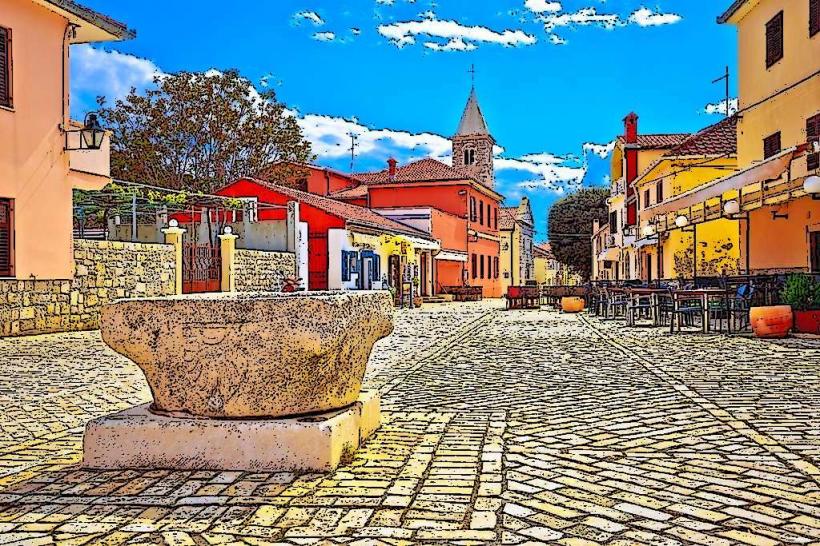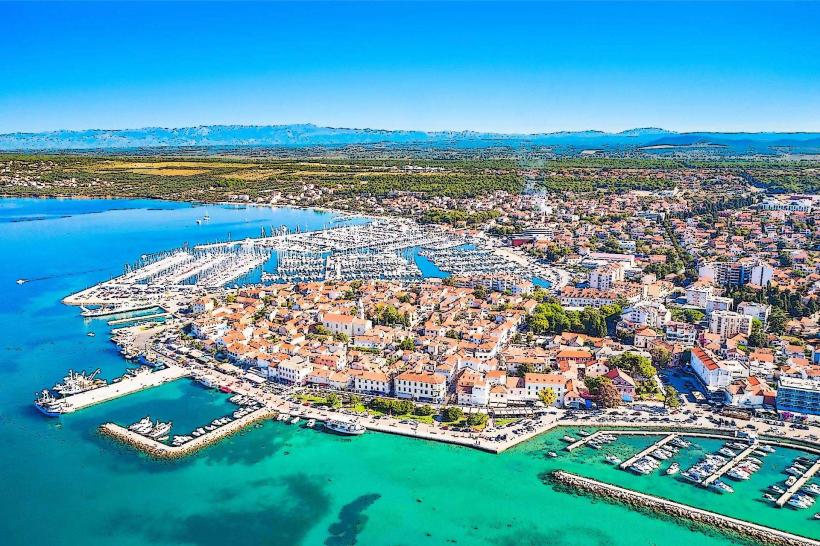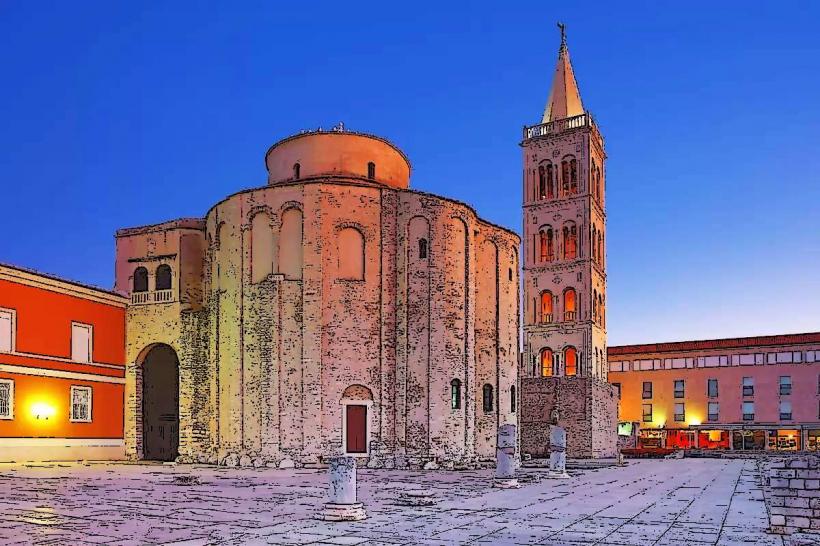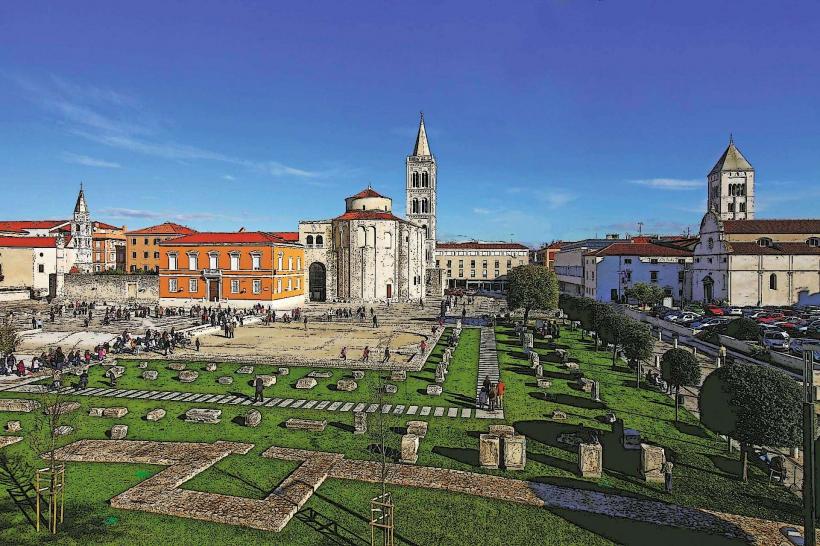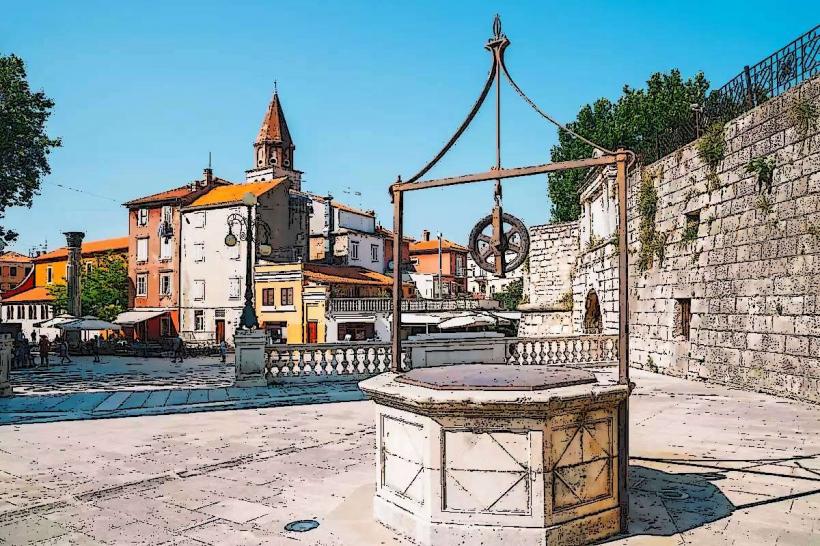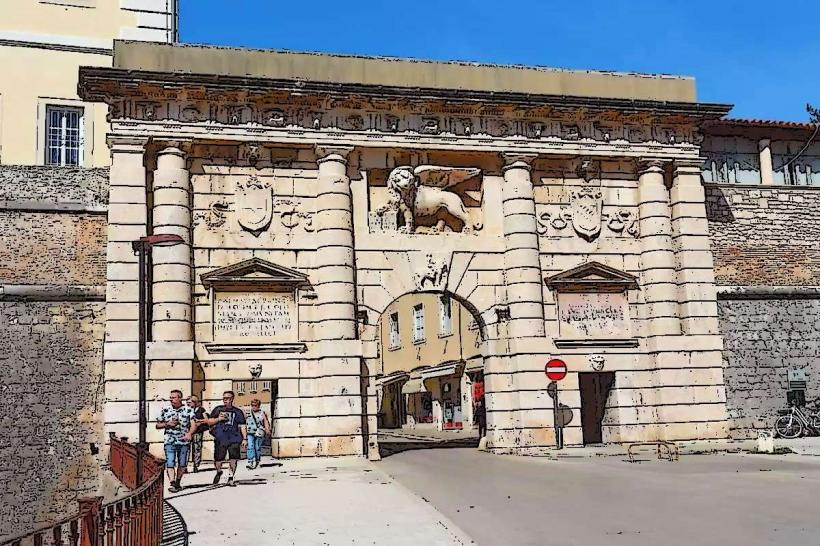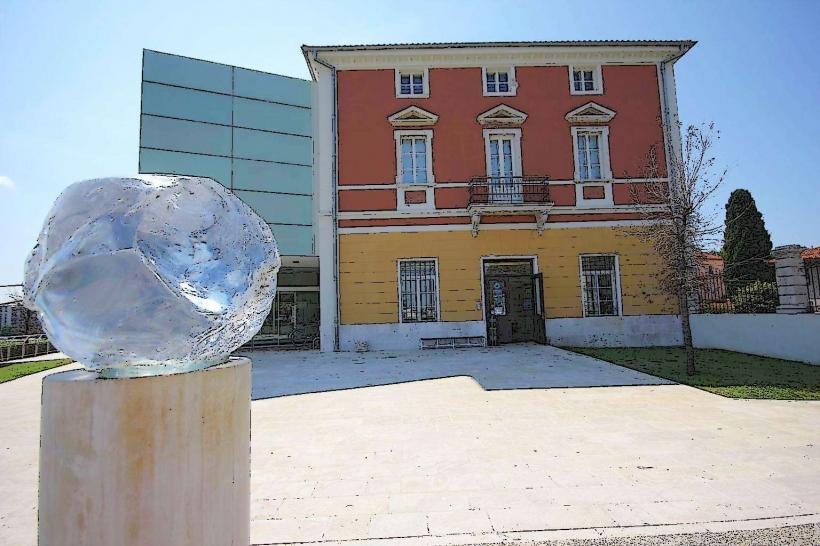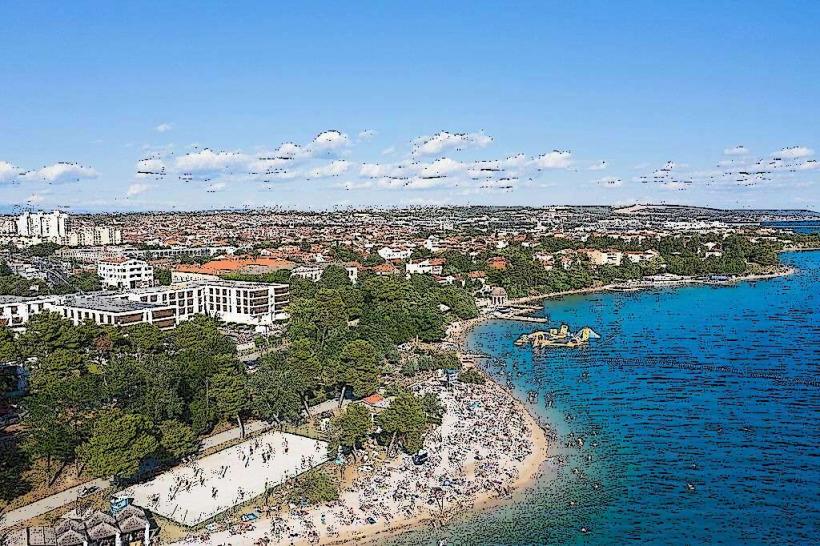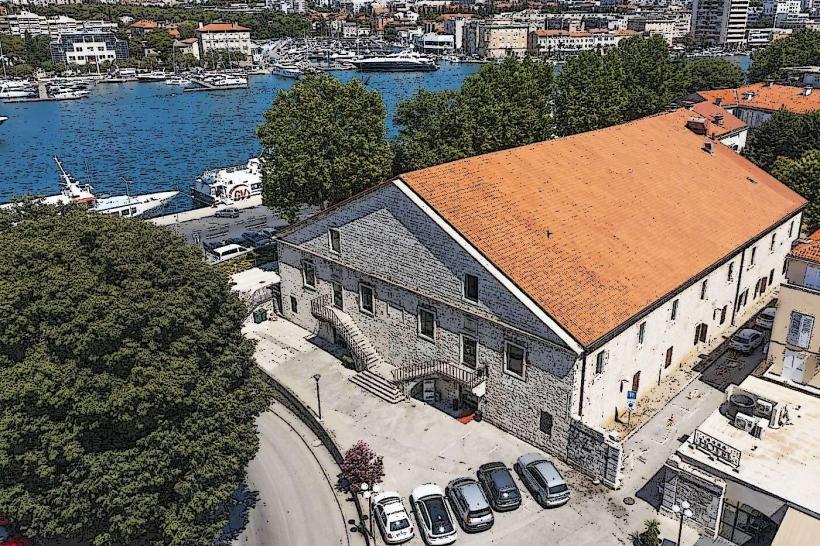Information
Landmark: Zadar CathedralCity: Zadar
Country: Croatia
Continent: Europe
Zadar Cathedral (Cathedral of St. Anastasia) – Zadar, Croatia
The Cathedral of St. Anastasia (Katedrala sv. Stošije) is the largest cathedral in Dalmatia and a stunning representation of Romanesque architecture. Located in the heart of Zadar, it has been a center of religious and cultural life for centuries. Its intricate design, historical significance, and breathtaking views from its bell tower make it a must-visit landmark for travelers exploring the city.
Historical Background
- Origins: The cathedral's origins date back to the 4th or 5th century, when a smaller basilica was constructed on the site. The current structure was built between the 9th and 13th centuries, with significant Romanesque additions during the 12th and 13th centuries.
- Patron Saint: The cathedral is dedicated to St. Anastasia, a martyr from the early Christian era whose relics were brought to Zadar from Constantinople by Bishop Donatus in the 9th century.
- Venetian Influence: During Zadar’s time under Venetian rule, the cathedral was an important ecclesiastical center. Its architecture reflects a blend of Byzantine, Romanesque, and later Gothic influences.
Architectural Features
- Romanesque Facade: The cathedral’s west-facing facade is a masterpiece of Romanesque art, with detailed carvings and arched windows. Its symmetrical design is both elegant and imposing.
- Interior Layout: The cathedral features a three-nave basilica design with semicircular apses, a high altar, and a magnificent marble pulpit. The nave is adorned with arches supported by stone columns.
- Bell Tower: The bell tower, built in the 15th century and completed in the late 19th century, is a prominent feature of the cathedral. It offers panoramic views of Zadar and the surrounding Adriatic Sea.
Significant Art and Relics
- Relics of St. Anastasia: The relics of the cathedral’s patron saint are housed in a richly decorated sarcophagus in the sanctuary, making the site a place of pilgrimage.
- Mosaics: Remnants of early Christian mosaics can be seen in parts of the cathedral, showcasing its ancient roots.
- Marble Pulpit: The intricately carved marble pulpit, dating to the 13th century, is a highlight of the interior and a fine example of Romanesque craftsmanship.
- Organ: The cathedral’s organ adds to the spiritual ambiance, often accompanying religious ceremonies and concerts.
Historical Events
- Crusades: The cathedral suffered significant damage during the Fourth Crusade (1202–1204) but was later restored to its former glory.
- World War II: Zadar experienced heavy bombing during World War II, but the cathedral survived with minimal damage, retaining its historical and architectural integrity.
Visitor Highlights
Climb the Bell Tower
- The bell tower is open to visitors and provides breathtaking views of the Zadar Old Town, nearby islands, and the Adriatic Sea. The climb is steep but worth the effort.
Explore the Interior
- Admire the simple yet elegant Romanesque design, including the arches, apses, and columns. Take time to view the sarcophagus of St. Anastasia and the pulpit.
Attend a Concert or Mass
- The cathedral hosts regular masses and occasional classical music concerts, offering a chance to experience its incredible acoustics and serene atmosphere.
Practical Information
- Location: In Zadar’s Old Town, near the Roman Forum and St. Donatus Church.
- Opening Hours: Generally open daily; hours may vary depending on religious services or events.
- Entrance Fee: Entry to the cathedral is usually free, but there is a small fee for climbing the bell tower.
- Dress Code: As a functioning place of worship, modest attire is required.
Nearby Attractions
- Roman Forum: Adjacent to the cathedral, it is an open-air archaeological site dating back to the 1st century BCE.
- St. Donatus Church: A 9th-century masterpiece of pre-Romanesque architecture located next to the cathedral.
- Sea Organ and Greeting to the Sun: Just a short walk away, these modern installations offer a contrast to Zadar’s ancient landmarks.
Interesting Facts
- Byzantine Ties: The relics of St. Anastasia were brought from Constantinople, reflecting Zadar’s historical connection to the Byzantine Empire.
- Largest Cathedral in Dalmatia: Its size and grandeur make it a defining symbol of the region’s religious and cultural heritage.
- Endurance Through Centuries: Despite wars, crusades, and natural disasters, the cathedral has remained a testament to Zadar’s resilience and spiritual identity.
Conclusion
The Zadar Cathedral is not just a religious monument but also a treasure trove of history and art. Its awe-inspiring architecture, rich heritage, and spiritual ambiance make it a highlight of any visit to Zadar. Whether exploring its Romanesque facade, climbing the bell tower, or admiring the relics of St. Anastasia, visitors are sure to leave with a deeper appreciation of Croatia’s cultural and historical wealth.



